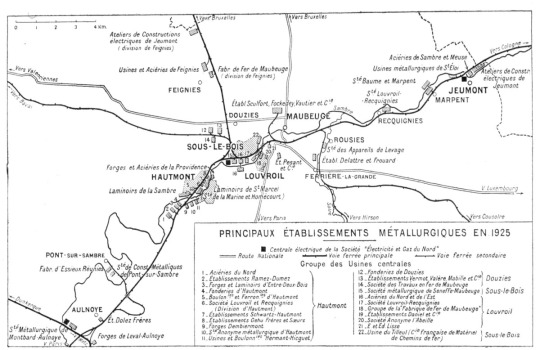#Maubeuge
Video
Sri Lanka Leopard - Zoo Maubeuge by Mandenno Photography
#Sri#Lanka#Leopard#srilanka#Animal#Animals#Animalplanet#animalphotography#Nature#NatGeo#Natgeographic#Natgeowild#wildlife#bbcearth#BigCat#Cat#feline#ZooMaubeuge#Maubeuge#France#Frankrijk#MandennoPhotography#flickr
81 notes
·
View notes
Text

Berlaimont, agglomération de Maubeuge.
Le collège.
44 notes
·
View notes
Text







495,000 €
193 m² / 2077 ft²
near Maubeuge, Nord, Hauts-de-France, France.
#beautiful french house#mansion#manor#countryside#garden#courtyard#outhouse#bricks#brick#tower#bedroom#kitchen#staircase#fireplace#mantelpiece#french#nord#maubeuge#nord pas de calais#hauts de france#france
3 notes
·
View notes
Text

Rumbles of the Mill bridge in Maubeuge during the First World War, French Hainaut region of northern France
French vintage postcard
#historic#photo#briefkaart#vintage#rumbles#region#maubeuge#sepia#photography#mill#carte postale#hainaut#postcard#bridge#postkarte#war#france#postal#tarjeta#northern#ansichtskarte#french#old#ephemera#postkaart#the first world war#world
3 notes
·
View notes
Photo

petit montage photo que je viens juste de réaliser a mon stage entre deux projet …. Ce montage est réalisé avec Affinity photo #montagephoto #photo #affinity #affinityphoto #photography #nature #wild #maubeuge (à Maubeuge) https://www.instagram.com/p/CaosaVeg6g8/?igshid=NGJjMDIxMWI=
2 notes
·
View notes
Text
Le corps sans vie doit être acheminé à l’institut médico-légal de Lille en vue d’une autopsie. Qu’est-il arrivé à cet homme ? Pour l’heure, il est difficile d’en dire plus si ce n’est qu’à 14 h 30, les policiers étaient toujours sur les lieux."
(Aussi sur Fb, 6 mai 2 023)
Article de La Voix du Nord : “Maubeuge : un homme sans vie découvert, ce samedi midi, flottant sur la Sambre“
#basile pesso#france#nord de la france#maubeuge#questions#sadness#tristesse#journalisme#journalistes#journalistes indépendants#contenu original#yes we are magazine
0 notes
Link
Pizzeria située à Maubeuge effectuant la livraison à domicile.
0 notes
Video
youtube
Maubeuge Zoo, France
#zoo#maubeuge#zoology#france#hautsdefrance#tourisme#tourism#tourism france#travelVLOG#travel france#vlog#vlogger#romonwrites#youtube#youtuber#youtubeur#influencer#influenceur
1 note
·
View note
Video
Sri Lanka Leopard - Zoo Maubeuge by Mandenno Photography
#srilanka#Leopard#Sri#Lanka#Animal#Animals#Animalplanet#animalphotography#Nature#NatGeo#Natgeographic#Natgeowild#wildlife#bbcearth#BigCat#Cat#feline#Maubeuge#ZooMaubeuge#France#Frankrijk#MandennoPhotography#flickr
74 notes
·
View notes
Text

Saint Amalberga of Maubeuge (also Amalia, or Amelia of Lobbes or Binche) was a Merovingian nun and saint who lived in the 7th century.
1 note
·
View note
Text


[JUMPING INTERNATIONAL DE MAUBEUGE] 8th place for Pénélope Leprévost & Djagger Semilly in the CSI*** (Photo by Louise Bruyere)
1 note
·
View note
Photo

montage photo que j'ai réalisé avec affinityphoto #affinity #affinityphoto #montagephoto #maubeuge (à Maubeuge) https://www.instagram.com/p/Cao0b9NAyfN/?igshid=NGJjMDIxMWI=
2 notes
·
View notes
Text

Church “Saint-Pierre-et-Saint-Paul” (1950-58) in Maubeuge, France, by André Lurçat
232 notes
·
View notes
Note
you mentioned that carnot went behind the others' backs to wage a war of conquest, would you mind talking about that a little more? i don't know that much about carnot and his war opinions but i would like to! thank you for your excellent posts :)
Before discussing Carnot's actions during wartime, it's essential to understand his political journey, as it inherently shapes his conduct during conflicts. He exhibits a true weathercock attitude, common among politicians of his era (and persisting today), although not as extreme as someone like Fouché.
Initially allied with the Girondins on war-related issues, he maintained this stance while also voting for the King's death, similar to the Montagnards, and advocating for progressive taxation. Personally, I view his alliance with the Montagnards as opportunism that persisted throughout his life, unlike Couthon, whose allegiance to the Mountain seemed more genuine, but this is solely my perspective. His ideas of war of conquest to better pillage, they will be constant throughout his life.
Later on, Carnot found himself at odds with Saint-Just, particularly regarding wartime strategy. Contrary to popular belief, Carnot could be more decisive than Saint-Just in matters of punishment even if Saint Just established army discipline with others.
While Carnot did a decent job in terms of armament, the ideas of Saint-Just and others significantly contributed to improving the army and securing victories. Saint-Just's encouragement of fraternity among soldiers, requisitioning shoes from aristocrats to distribute to barefoot soldiers who fought without shoes, and his equal treatment of generals and soldiers, instauring fraternity , and the courage to put himself in the front on the front line which earned him admiration including his enemies like Marc Antoine Baudot, boosted troop morale.
Moreover, there was a replacement of generals genuinely motivated to ensure the army's victory because some generals with affiliations to royalists, aristocratic backgrounds, or little sympathy for the Republic lacked the commitment to save France. Carnot failed to address these issues, despite opportunities.
One might argue that Carnot's physical presence in Paris to coordinate operations was necessary, but his interference with specialists on the ground hindered progress.
Regarding the question of Fleurus, a significant victory for the French Republic, Carnot's actions trouble me deeply. He demanded a reduction in Jourdan's army by 18,000 men, issuing the order behind Saint-Just's back, with plans for these troops to serve under General Pichegru and plunder Rhin. Saint-Just intercepted and canceled the order, preventing a potential defeat at Fleurus. These actions occurred without the knowledge of his colleagues deputies who advocated for French armies to remain within natural borders.
To support my claims, here is an excerpt from Saint-Just's last speech:
"In the absence of this member, a military expedition, which will be judged later because it cannot yet be made known, but which I consider insane given the prevailing circumstances, was conceived. Orders were given to draw, without informing me or my colleagues, 18,000 men from the Army of Sambre-et-Meuse for this expedition. I was not informed, why? If this order, given on the 1st of Messidor, had been executed, the Army of Sambre-et-Meuse would have been forced to leave Charleroi, perhaps to withdraw under Philippeville and Givet, and to abandon Avesnes and Maubeuge. Shall I add that this army had become the most important?
The enemy had brought all its forces against it, leaving it without powder, cannons, or bread. Soldiers died of hunger there while kissing their rifles. An agent, whom my colleagues and I sent to the Committee to request ammunition, was not received, which would have flattered me had he been, and I owe this praise to Prieur, who seemed sensitive to our needs. Victory was necessary, and we achieved it.
The Battle of Fleurus contributed to opening up Belgium. I desire justice to be done to everyone and victories to be honored, but not in a manner that honors the government more than the armies, for only those who are in battles win them, and only those who are powerful benefit from them. Victories should therefore be praised, and oneself forgotten'".
Strangely, whereas Saint-Just spares Billaud-Varennes even if he critize him, Carnot is rightly put back in his place for his actions. He should have been at least fired to the moment when he make order on the back of his colleagues for this such action . In these period generals could have been executed for less than that. General Hanriot ( mistreated by history too), who effectively contained Parisian excesses through persuasion and not repression ( indication of good competence) , opposed Carnot's plan to strip Paris of his gunners, indicating Carnot's interference in matters beyond his expertise. I admit it was a free tackle against Carnot that one.
Skipping over the events of the Thermidorians, Carnot's adept political maneuvering aligns him once again with the right and its wars of conquest were able to continue being free from any important opponent in this matter during the period of Directoire. He becomes one of the five directors, earning the nickname "Organizer of Victory." However, this title is both pompous and false, as Carnot's contributions were not singular. He carried out violent repression against the Babouvists and accepted Napoleon's pardon, serving as Minister of War under the Consulate, despite his opposition to the creation of Napoleon's empire and was marginalized for it within the government. During the Hundred Days, Carnot's weathercock attitude contrasts with Prieur's steadfastness, ultimately resulting in his exile without ever returning to France because of the statut of regicide ( too bad that the punishment was the same for Prieur de la Marne). Why am I more indulgent to Prieur de la Marne than Carnot?
I mean that Prieur opposed Napoleon and his coup d'état on 18 Brumaire to the point of being dismissed immediately. It seems that he mainly adhered to the hundred days of Napoleon for fear of a new restoration of the Bourbons.
Carnot accepted the title of Minister of the Interior and was made a count. Big difference for me.
In conclusion, Carnot's conquest wars cost France dearly, morally and pragmatically, potentially favoring the emergence of a military dictator, the end of the French Revolution and facilitating the restoration of the Bourbons. It's regrettable that he didn't heed his colleagues' advice on this matter. This is solely my opinion, and I apologize to Carnot's admirers ( once again it's okay to contradict me) . All information provided is drawn from sources like Albert Ollivier, Soboul, etc. You can explore revolutionary portraits on the Veni Vidi Sensi website for further insights.
P.S.: Thank you for the compliment on my posts; I strive to offer the best insights drawn from historians and contemporaries.
17 notes
·
View notes
